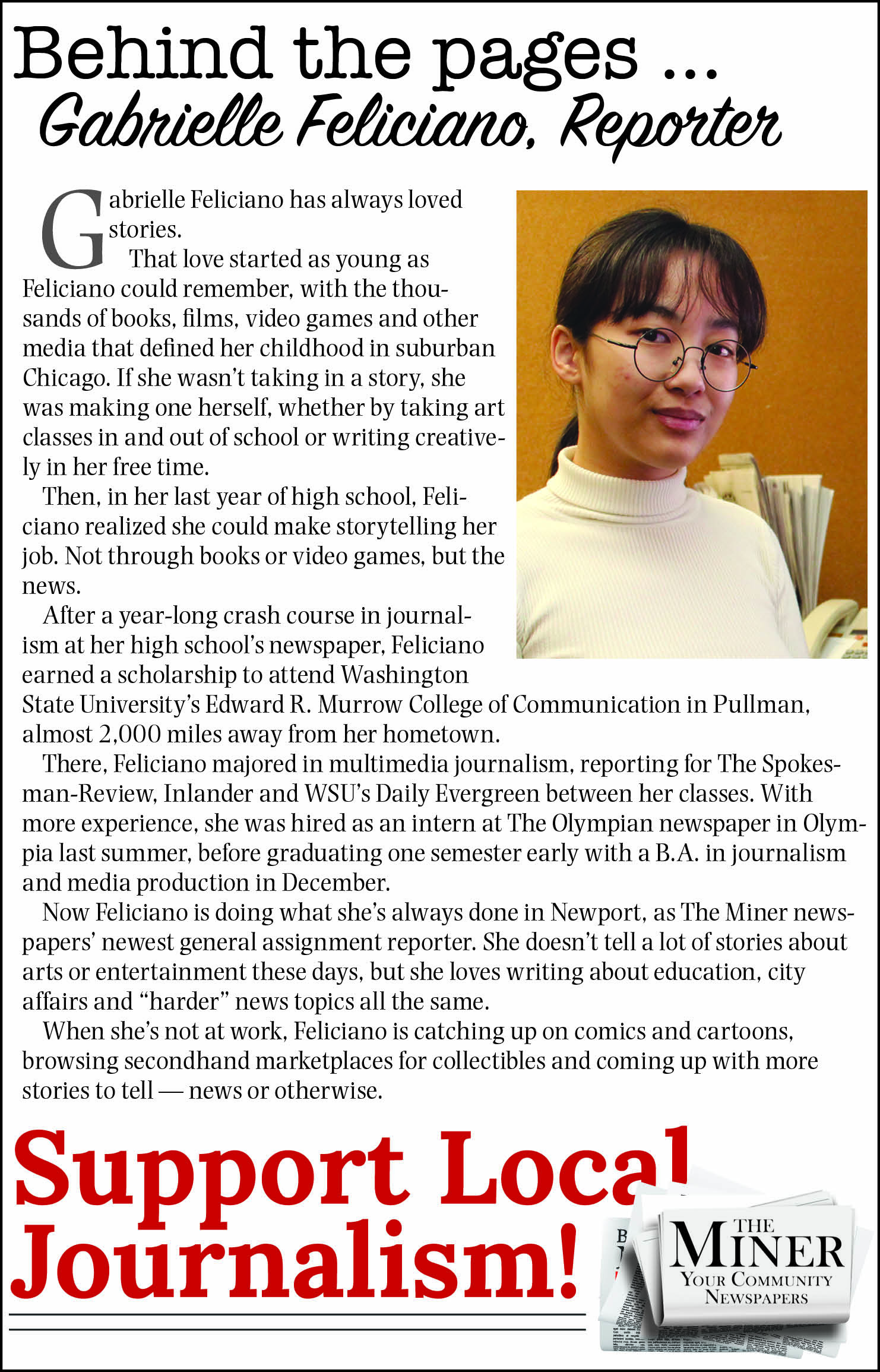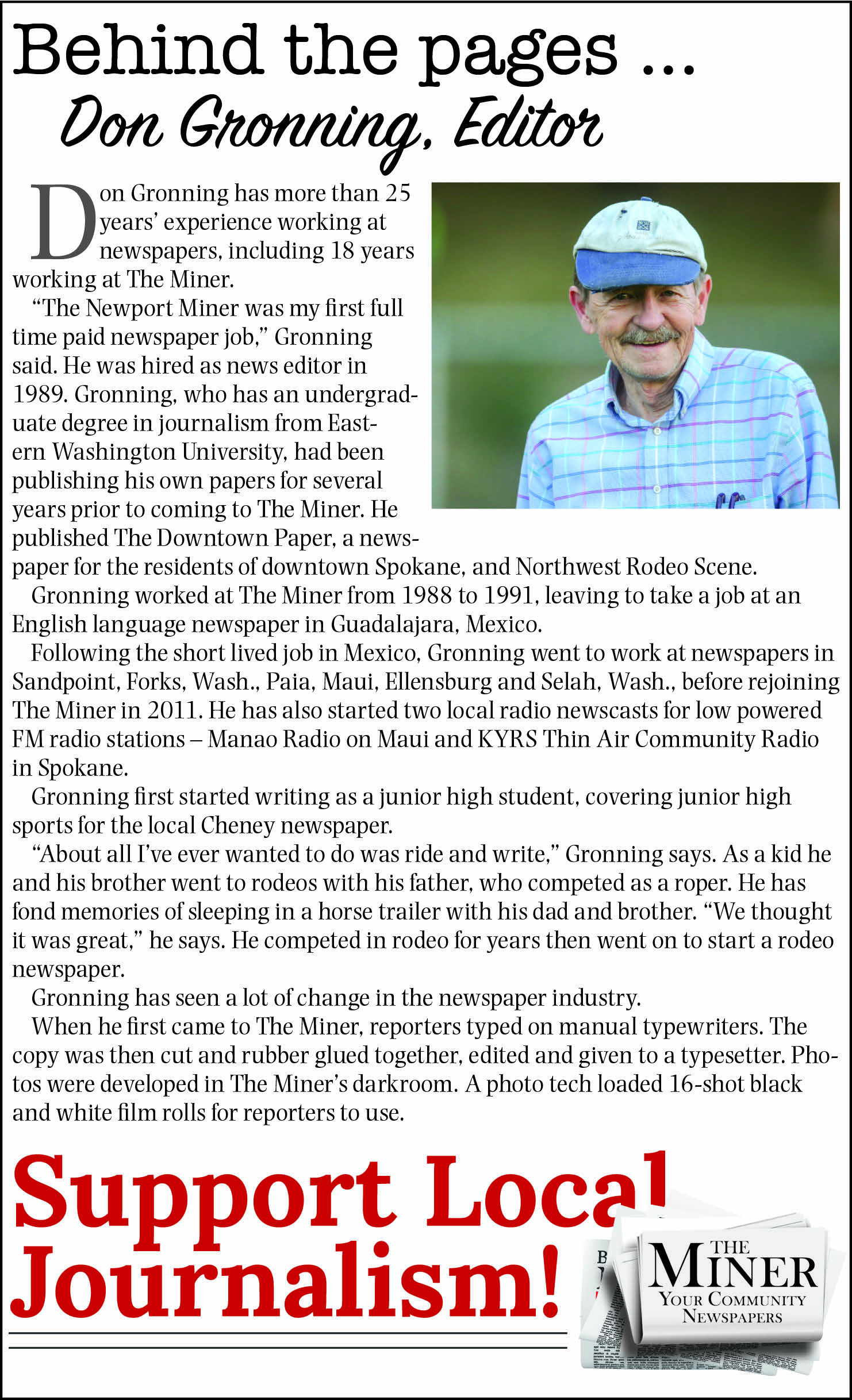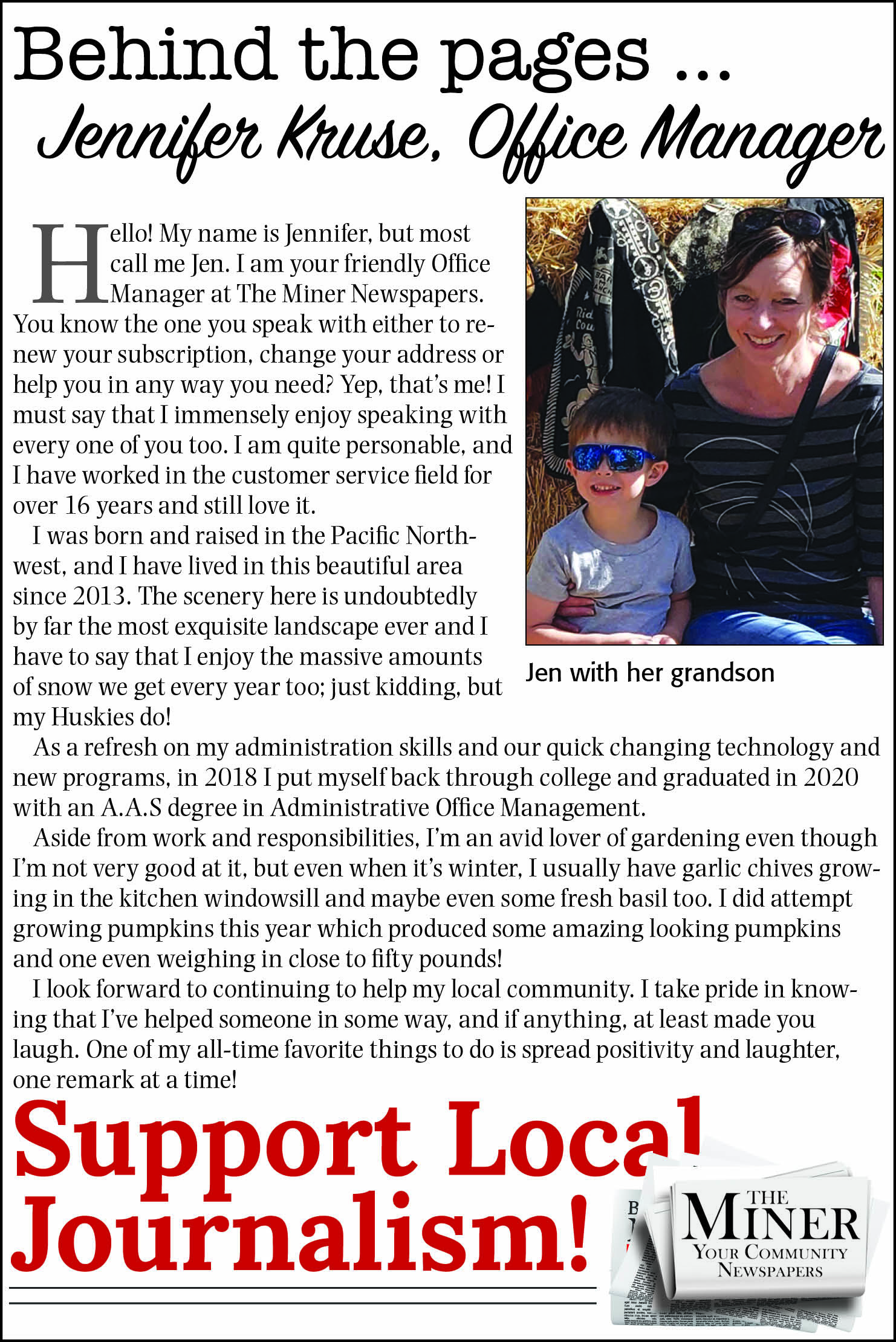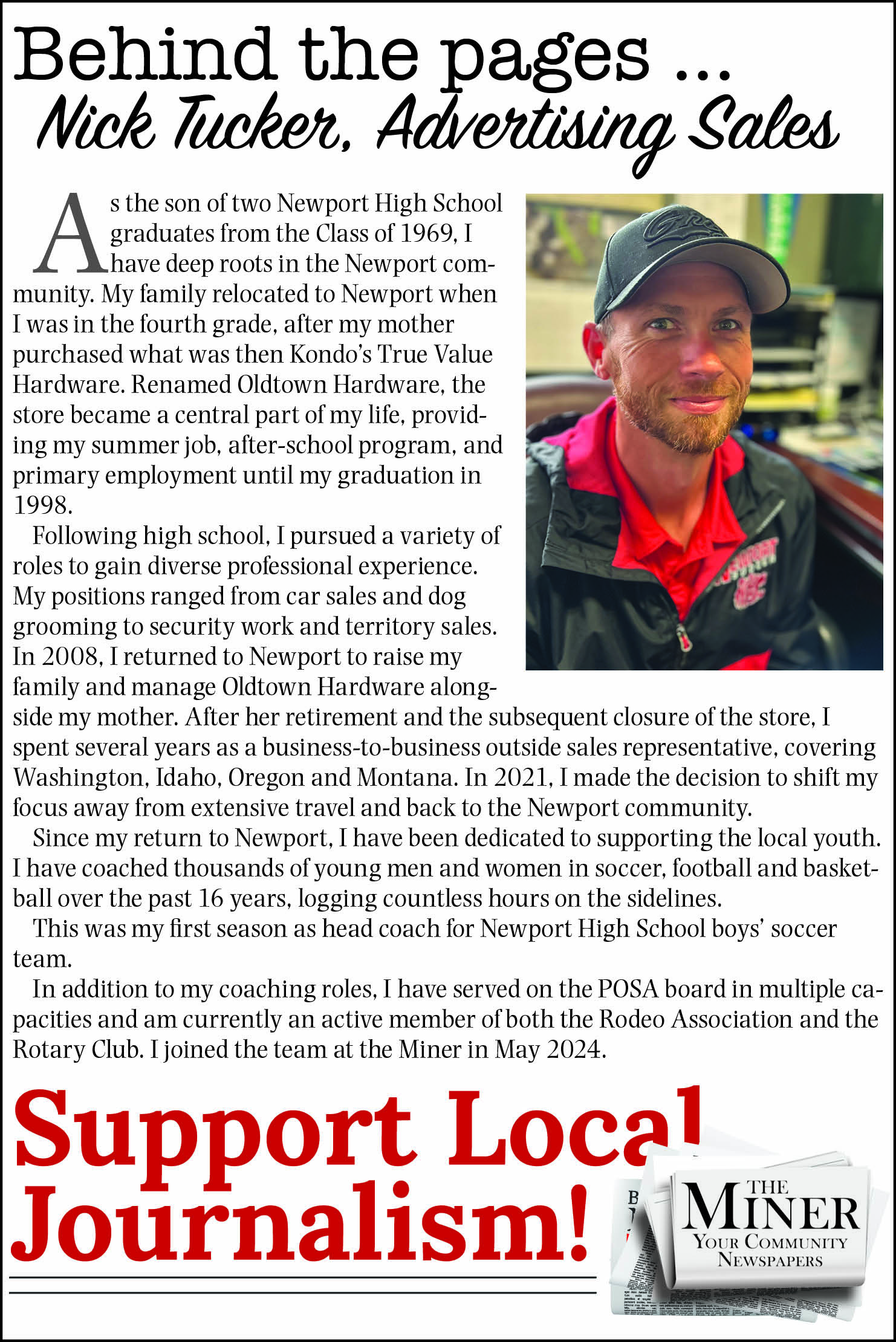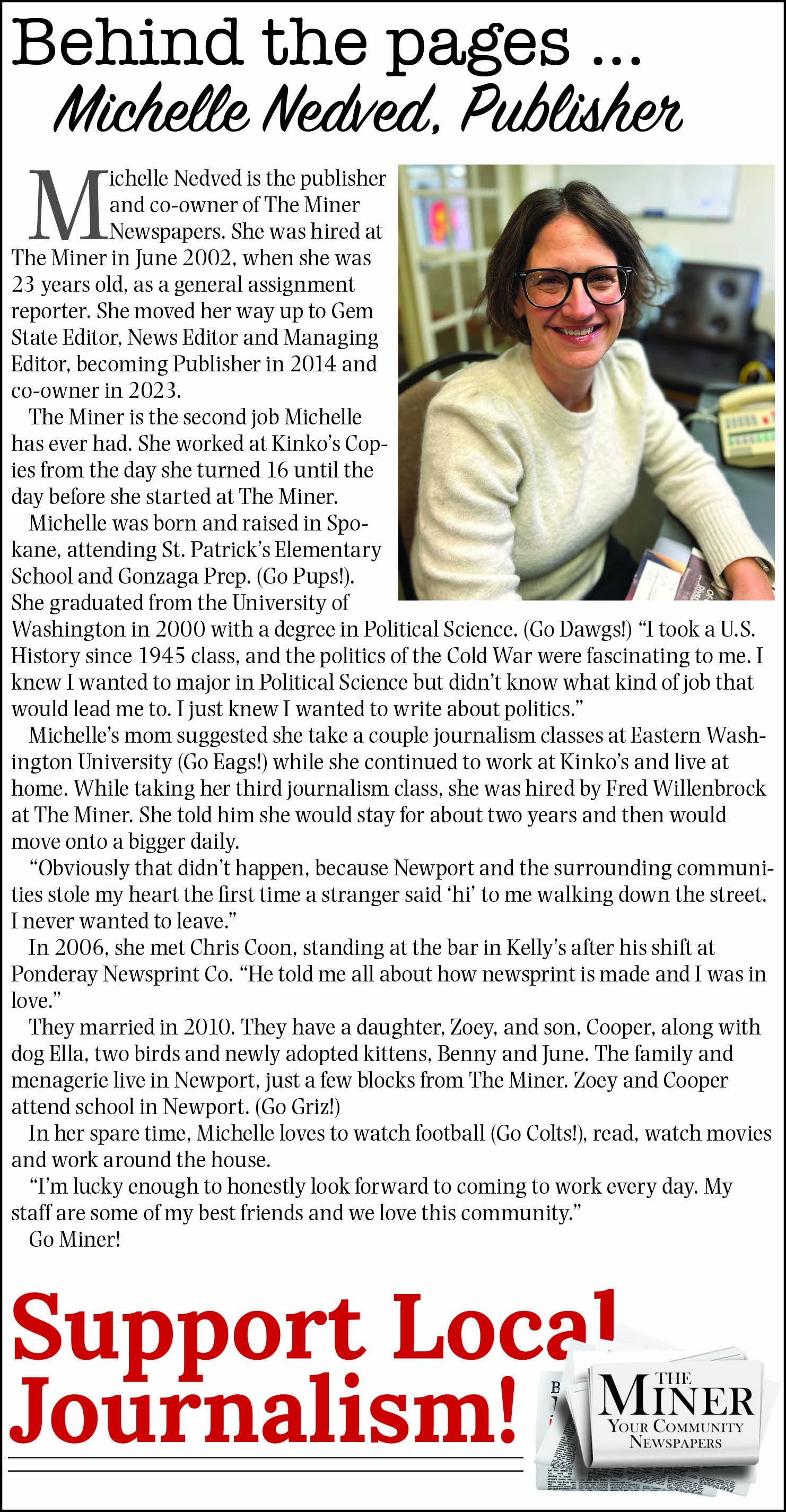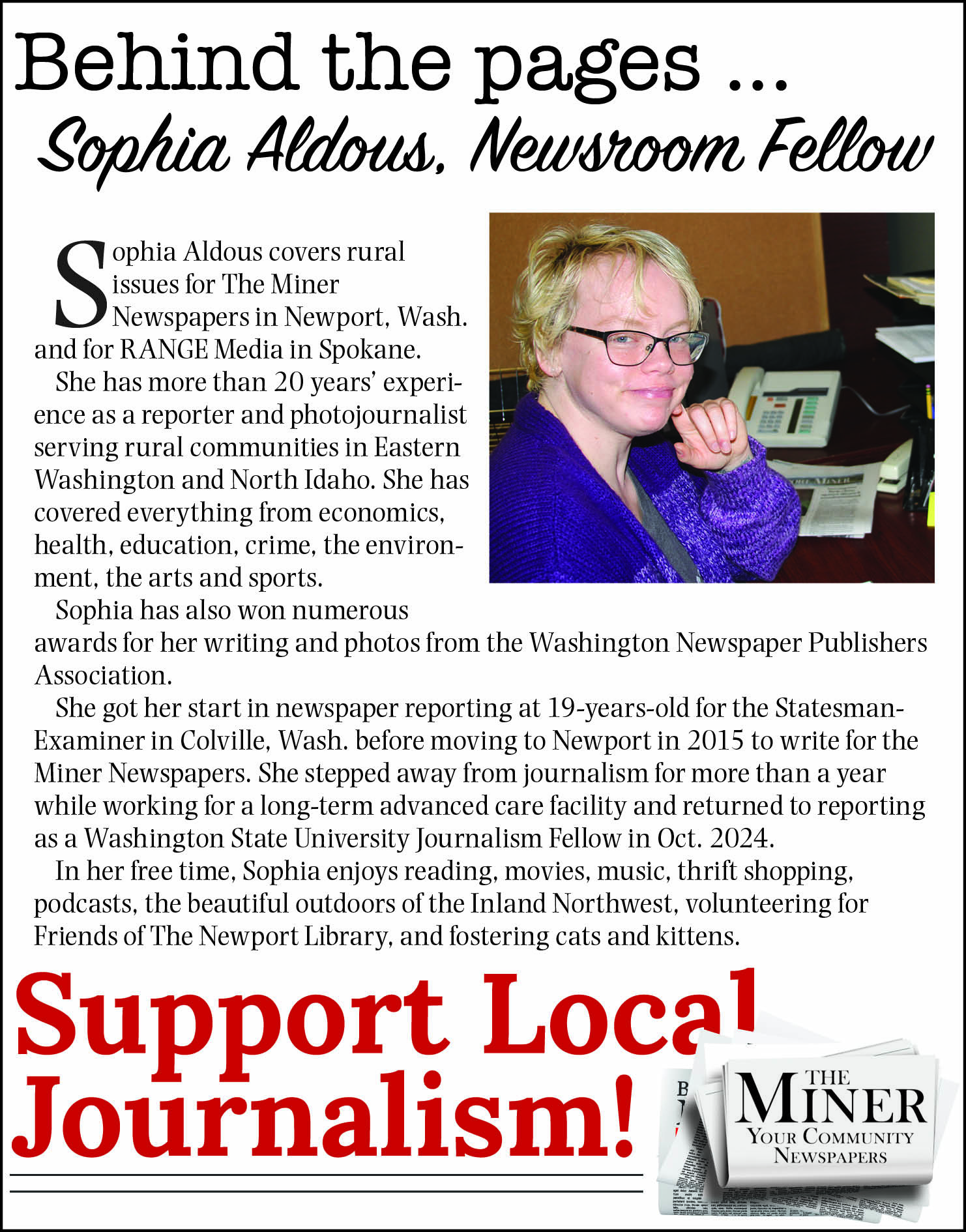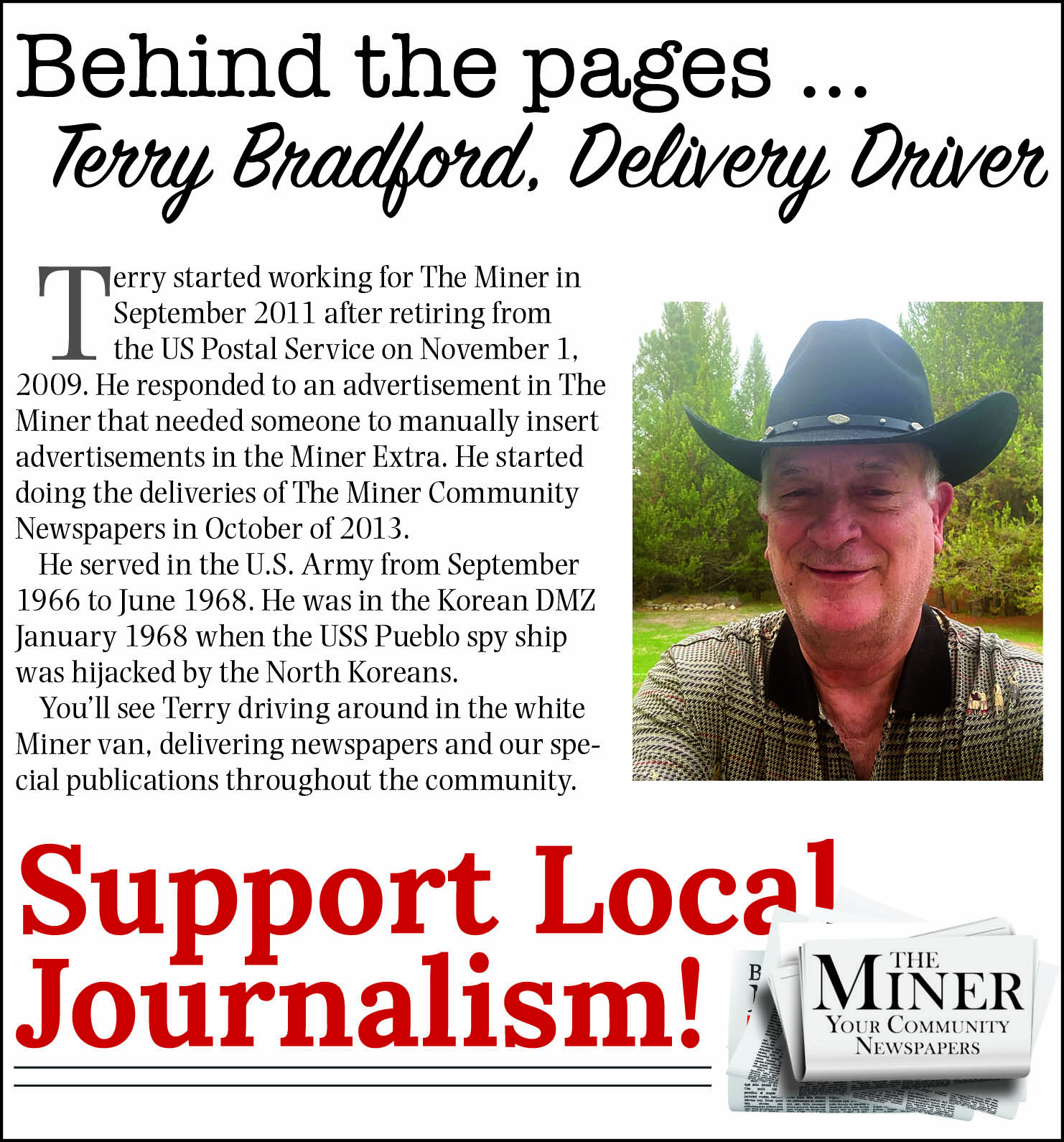EDITOR’S NOTE: Francis Cullooyah passed away Aug. 31. This is an updated Miner story that ran in 2013.
USK – More than a decade ago, Francis Cullooyah, didn’t think he had long to live. He had been diagnosed with stage four colon cancer.
“I had kissed Francis Cullooyah goodbye,” he said when he heard the diagnosis. He knew it was grim. But in addition to western medicine – chemotherapy – Cullooyah sought out a more traditional healer.
“I ended up going to a Navaho medicine man,” Cullooyah said.
Cullooyah is a member of the Kalispel Tribe of Indians. He was one of a handful of people who were raised speaking the language of the tribe – Salish. After the diagnosis, Cullooyah met up with the Navajo man, a Hopi medicine man and two women in Flagstaff, Ariz.
“We drove to the mountains,” Cullooyah says. There the medicine man and women did a sand painting. Cullooyah stood in the circle while the sand painting was meticulously crafted. “It took four hours, but it seemed like ten or fifteen minutes,” Cullooyah said.
Cullooyah flew back to Washington for his doctor appointment. They took blood, he said. After a while a nurse came in and said the doctor wanted to see him.
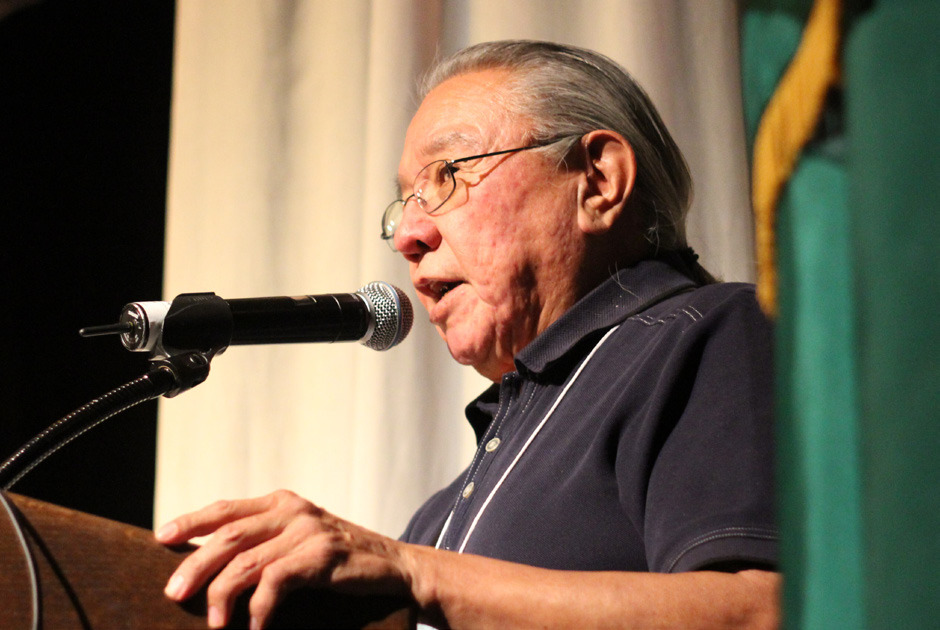
The doctor told him that his white blood count was up and that he didn’t need chemotherapy that day. A short time later it was discontinued altogether and Cullooyah was in remission in 2014.
Cullooyah was raised on the Kalispel Reservation and grew up speaking Salish.
Reservation life was pretty basic in the early 50s. His mother made his clothes and Cullooyah says there wasn’t electricity on the reservation until about 1953. A couple years later his grandfather acquired a television.
“We had a lot of visitors,” Cullooyah laughs.
Cullooyah attended school at Cusick.
“I wasn’t the best student, but I made it through,” he remembers. “I played about every sport there was.”
There was a certain amount of racial tension between Indian people and white people in those days, although Cullooyah downplays it.
“I seemed to get along with the kids,” he says. “But in those days there were a lot of people who moved here that didn’t know Indian people.”
After graduation, Cullooyah was accepted into the Institute of American Indian Arts in Santa Fe, New Mexico. He attended college with George Flett, an acclaimed Native American artist famous for his ledger paintings.
“There were four or five of my classmates that made it big,” Cullooyah said. Cullooyah’s interest changed at the Institute.
“I started as a painter,” he said. “Little did I know I was interested in museum work.”
That led to a contract with the Bureau of Indian Affairs. He helped set up a gallery of Indian art on the fourth floor of the Department of Interior Building in Washington D.C.
“Four of us spent 16 weeks establishing that show,” he said. The show was taken on the road. “It hit every big museum in the United States.”
Cullooyah was a member of a group of Native Americans who performed for President Lyndon Johnson and the President of the Republic of Upper Volta during a state visit. He has a picture in his office of him shaking hands with President Lyndon B. Johnson in 1964. LBJ towered over Cullooyah. “He was big,” Cullooyah remembered. “His hands were huge.”
LBJ didn’t just shake hands with the visitors, he also spent time talking to Cullooyah and the others. Cullooyah returned to the Institute of American Indian Arts, where he graduated.
Following graduation, he went on to study anthropology at the College of the Virgin Islands for two years.
Cullooyah eventually returned to Usk, where, among other things, he competed in rodeo as a bull rider.
But an alcohol problem put an end to his rodeoing.
Cullooyah said alcohol was a huge problem in Usk.
“At one time I could count on one hand the number of people who didn’t drink,” he says. By 1995, things had changed. “I could count on one hand the number of people who still drank,” he said.
Overcoming alcohol addiction wasn’t easy.
“In 1973, I quit drinking for five years,” he says. Then he started drinking again. He would get back on the wagon and stop drinking for a time, then fall off, he said. That went on until 1987, the last day he had a drink.
In the early 1990s Cullooyah worked for the tribe as the agricultural manager, running the tribe’s buffalo herd. Cullooyah went on to work for the state Department of Corrections as a spiritual advisor/Native American chaplain. He worked in that role until 1999.
“I resigned June 15, 1999,” he says. A week later he was elected to the Kalispel Tribe’s business council, its governing body.
He was unelected when he ran for another term, losing by two votes. About that time the tribe was approached by the man who ran the racetrack in Airway Heights. The man wanted the tribe to participate in a bingo hall he was planning to build. He had already been to the Spokane and Colville tribes, trying to get them involved, but they had turned him down.
He got a different reaction when he asked the Kalispels to get involved.
“We didn’t have anything to lose,” Cullooyah says. The tribe was about bankrupt, he says, and desperate for economic development.
The project eventually evolved into the Northern Quest Resort and Casino. But it took time.
“It took eight years after the decision before we could open,” Cullooyah said. The tribe had to get state and federal approval to open a casino so far from Usk.
But approval was eventually granted and the rest is history. Cullooyah marvels at the project.
“It went from a bingo hall to a 4,000 square foot building being built,” he said. Cullooyah went on to work as director of the tribe’s cultural program.
Cullooyah wanted people to know about the Kalispel way of life. When he grew up, he was steeped in Kalispel culture. His mother, Annie Ignace, was a Kalispel tribal member and his father, Frank Cullooyah, was a member of the Flathead Tribe in Arlee, Montana. Cullooyah spent part of his time in Montana and part in Usk. Both tribes speak Salish, although the dialect is slightly different. Cullooyah looks back on his childhood fondly.
“I was fortunate to live that life,” he says.
Sadly, Cullooyah succumbed to a rare and aggressive cancer, T-Cell ALL (Acute Lymphoblastic Leukemia) Char-Koosta News, the official news publication of the Flathead Indian Reservation reported. Word of his passing spread throughout the plateau and Indian Country.
The Cullooyah family announced his death Sept. 1 on Facebook, writing that “the man, the myth the legend,” had lost his battle with the rare cancer. The news was announced at the Spokane Tribe’s Labor Day Celebration before the Honoring of the Chiefs Men’s Traditional special, held in honor of Francis Cullooyah on Sunday afternoon, Char-Koosta News reported.
“The special was in honor of Cullooyah for ‘The Last Dance.’ He was also honored at the Kalispel Celebration in August during the men’s prairie chicken special,” Char-Koosta News reported.
The joyous atmosphere in the dance pavilion at Wellpinit turned somber as many in attendance knew Cullooyah and the impact he made in language preservation, cultural teachings, on the powwow trail, and his family. Cullooyah was the Kalispel Cultural Program Director at the Kalispel Tribe of Indians and in his 80 years of life, he was known to share teachings and words of encouragement to every person he met.
As his daughter, Taunie, and grandchildren gathered at the Spokane Tribe’s Labor Day Celebration to dance and put on the special in his honor, their hearts were heavy. Tears were shed and many in the crowd embraced the family of Cullooyah.
“My sile wouldn’t have wanted us to be sad today. That was the man he was. He’d want us all to jam out, dance, pray for him, help him on his journey today. I want all my brothers to leave it all out on the floor. As hard as it is for me, all of your guys’ dancing helps the family and everyone that’s hurting. So no matter the outcome today of the winners, just remember what you’re dancing for. We’re honoring my grandpa,” said Cullooyah’s grandson, Jerry Ford Jr.
Friends and relatives from the Flathead Reservation traveled west to bid farewell and support the family similar to the way he traveled here to visit, pray and help families in their time of grief.
Services for Cullooyah began Tuesday, Sept. 3 with a family wake followed by a community wake on Wednesday at the Tulee Stickgame House located on the Qalispe Powwow grounds. Funeral services were held Thursday, Sept. 5.
.png)






